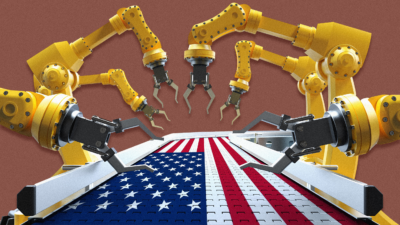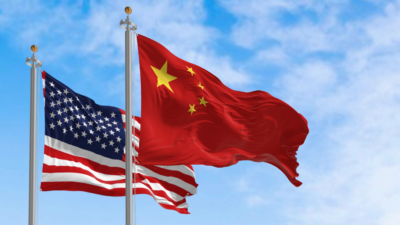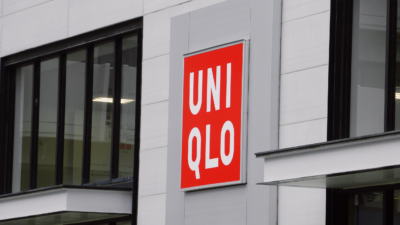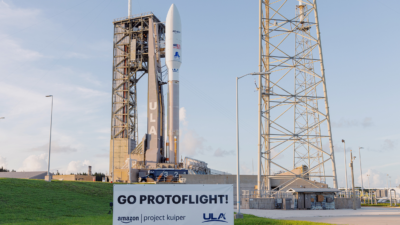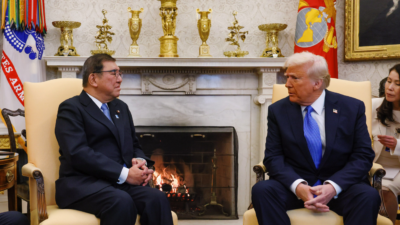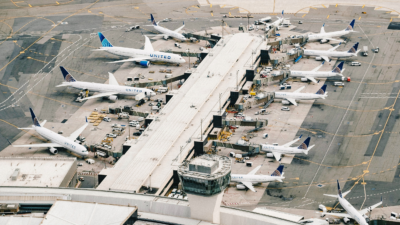General Motors Bears Brunt of New Auto Tariffs
At home in the US, one of Detroit’s Big Three stood out as vulnerable to a potential trade war: General Motors.

Sign up for smart news, insights, and analysis on the biggest financial stories of the day.
Automakers around the world were treated to a symphony of engine backfiring on Thursday, the first day of trading since markets digested new 25% US tariffs on imports of cars and parts set to kick in on April 2. Toyota, Hyundai, Honda, Ferrari, Volkswagen, you name it — like the transmission on an old Saab, their shares were all down.
At home in the US, meanwhile, one of Detroit’s Big Three stood out as particularly vulnerable to a potential trade war: General Motors. The carmaker has an exposure problem, and on Thursday it paid a steep price for that.
A Time for Generalization
Ford is the best insulated of the Big Three, with 79% of the cars it sells in the US built on domestic soil. Chrysler-owner Stellantis, meanwhile, imports roughly 40% of the vehicles it sells in America from Mexico and Canada. But GM, which has assembly plants in Mexico, Canada and South Korea, imports 49% of its cars sold in the US, according to Bank of America analysts.
So it’s no surprise that — while Ford shares dropped 3.8% Thursday and Stellantis fell 1.2% — GM shed a dramatic 7.3%. (Stellantis is headquartered in the Netherlands and owns several European brands, meaning its revenue footprint is spread more broadly beyond the US market). GM will continue to face a unique uphill battle:
- The company’s shares are down 11% this year as investors grow concerned that management hadn’t addressed tariffs exposure. In February, CFO Paul Jacobson tried to assuage those concerns by stating GM had a “playbook” to deal with tariffs, which included trimming its foreign inventory by 30% at that point to get vehicles in before tariffs went up.
- But if tariffs stay in place for a long period and more inventory is needed, GM could be looking at a price problem. Goldman Sachs estimated Thursday that the 25% levy could push up the sticker price on imported cars by $5,000 to $15,000, compared with just $3,000 to $8,000 for ones manufactured stateside.
One merciful reprieve for GM: Trump administration officials said there will be a temporary exemption on vehicles and parts subject to the U.S.-Mexico-Canada free-trade agreement, meaning the company may have more time to move inventory stateside.
Sticker Shock Therapy: Elon Musk-led Tesla, which makes all the cars it sells in the US at its Texas and California facilities, rose 1.7% on Thursday. The $14.3 billion increase in Tesla’s market cap was more than triple the $4.6 billion combined market value that Ford and GM lost, in a testament to the electric carmaker’s mammoth valuation, even in a down year.


